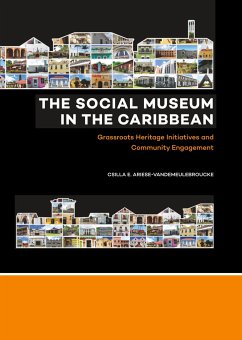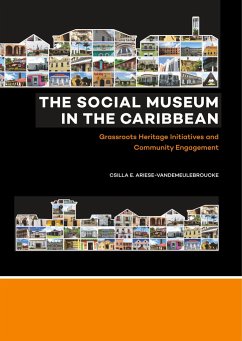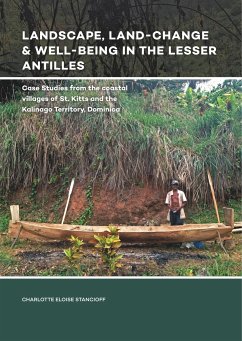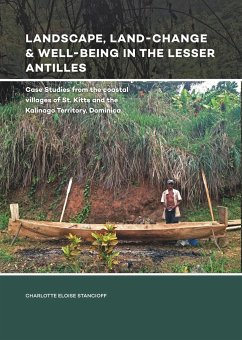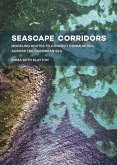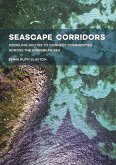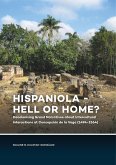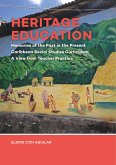A mosaic is the only image which can do justice to museums in the Caribbean. They are as diverse and plentiful as the many communities which form the cores of their organizations and the hearts of their missions. These profoundly social museums adopt participatory practices and embark on community engagement processes in order to embed themselves firmly in contemporary Caribbean societies.
This dissertation presents a mosaic of 195 Caribbean museums and the results of a unique research project based on a mixed methods approach. It begins with a macro view of Caribbean museums and their participatory practices. This part of the study consisted of a regional museum survey in which the museum visit was approached as an event, leading to the creation of an extensive database of Caribbean museums and their participatory practices. The dissertation continues by zooming in to a micro level to explore the dynamics of community engagement processes in two case studies. The KalinagoBarana Autê in Dominica shows the ongoing process of an indigenous grassroots initiative that became a governmentally owned but locally managed museum. The Bengal to Barbados exhibition in Barbados reveals the complex dynamics of the beginnings of a co-curation project between a heterogeneous migrant community and a national museum.
By giving voice to grassroots museums, this dissertation shifts the museological discussion away from the usual suspects to consider topics such as the ephemeral museum. By combining a regional museum survey with case studies, it provides both overarching and close-up views of this mosaic. From ecomuseums and object donations, to multi-vocality and participatory styles, and the need for negotiation and representativity, the study reveals a multitude of facets of the social museum in the Caribbean.
This book is a unique resource for museologists around the world, especially those interested in community engagement. It is particularly valuablefor those working in, with, or on museums in the Caribbean.
Contents
1. Introduction
2. Theoretical Framework
3. Methodological Framework
4. Caribbean Participatory Practices
5. Case Study: Kalinago Barana Autê, Dominica
6. Case Study: Bengal to Barbados Exhibition, Barbados
7. The Social Museum
8. Conclusions
Acknowledgements
References
List of Figures
Appendix
Summary in English
Summary in Dutch
Curriculum Vitae
Hinweis: Dieser Artikel kann nur an eine deutsche Lieferadresse ausgeliefert werden.
This dissertation presents a mosaic of 195 Caribbean museums and the results of a unique research project based on a mixed methods approach. It begins with a macro view of Caribbean museums and their participatory practices. This part of the study consisted of a regional museum survey in which the museum visit was approached as an event, leading to the creation of an extensive database of Caribbean museums and their participatory practices. The dissertation continues by zooming in to a micro level to explore the dynamics of community engagement processes in two case studies. The KalinagoBarana Autê in Dominica shows the ongoing process of an indigenous grassroots initiative that became a governmentally owned but locally managed museum. The Bengal to Barbados exhibition in Barbados reveals the complex dynamics of the beginnings of a co-curation project between a heterogeneous migrant community and a national museum.
By giving voice to grassroots museums, this dissertation shifts the museological discussion away from the usual suspects to consider topics such as the ephemeral museum. By combining a regional museum survey with case studies, it provides both overarching and close-up views of this mosaic. From ecomuseums and object donations, to multi-vocality and participatory styles, and the need for negotiation and representativity, the study reveals a multitude of facets of the social museum in the Caribbean.
This book is a unique resource for museologists around the world, especially those interested in community engagement. It is particularly valuablefor those working in, with, or on museums in the Caribbean.
Contents
1. Introduction
2. Theoretical Framework
3. Methodological Framework
4. Caribbean Participatory Practices
5. Case Study: Kalinago Barana Autê, Dominica
6. Case Study: Bengal to Barbados Exhibition, Barbados
7. The Social Museum
8. Conclusions
Acknowledgements
References
List of Figures
Appendix
Summary in English
Summary in Dutch
Curriculum Vitae
Hinweis: Dieser Artikel kann nur an eine deutsche Lieferadresse ausgeliefert werden.
